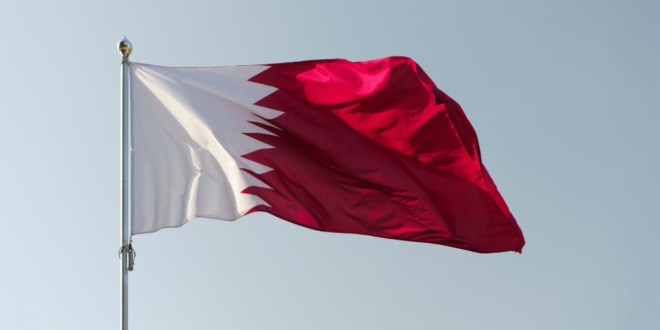For Israel, Qatar’s silence on a fatwa calling for “armed jihad” against the Jewish state is deafening. On April 9, Israel’s Foreign Ministry implored Doha to publicly reject the religious edict, which the Qatar-based International Union of Muslim Scholars (IUMS) issued on March 31. The fatwa instructs Muslim governments to support Hamas “militarily, economically, and politically” and to besiege Israel by “land, air, and sea.” American Muslims, the IUMS said, should “use all available means to pressure” the Trump administration to end the war in Gaza.
The IUMS is a global network of Islamic scholars. The organization reportedly receives funding from the Qatari royal family and is broadly aligned with the Muslim Brotherhood, an Islamist movement that originated in Egypt. The grand mufti of Egypt issued a rejection of the March 31 fatwa on behalf of Dar al-Iftaa, Cairo’s Islamic advisory, justiciary, and governmental body.
A senior Israeli official said that Qatar’s failure to denounce the IUMS fatwa “is disappointing” given the emirate’s role in Gaza ceasefire negotiations. Qatar is implicitly endorsing what the official described as “a call for murder” while parading as an honest broker.
Qatar’s Historic Support for the Muslim Brotherhood
The Muslim Brotherhood does not formally operate inside Qatar, but Doha has long supported the Islamist movement and exported its ideology through the Qatar-owned Al Jazeera Media Network. The late Egyptian cleric Yusuf al-Qaradawi, widely seen as a spiritual leader of the Muslim Brotherhood, chaired the IUMS from its founding in 2004 until 2018. Qaradawi endorsed the kidnapping and murder of American soldiers in Iraq and Palestinian suicide bombings against Israelis. He also hosted a long-running talk show on Al Jazeera. When Egypt’s Muslim Brotherhood government fell in 2013, Qaradawi relocated to Qatar, where he died in 2022.
Qatar is also a longtime sponsor of Hamas, which grew out of the Muslim Brotherhood in the 1980s. Doha offered Hamas leaders sanctuary after Jordan expelled them in 1999. Qatar backed Hamas’s takeover of Gaza in 2007. Hamas officially relocated its politburo to Doha in 2012. Qatar has since provided Hamas-run Gaza with over $1 billion, primarily to support local infrastructure. However, Israel’s Shin Bet security agency now assesses that Qatari money contributed to Hamas’s force buildup ahead of its October 7, 2023, invasion. Hamas’s late military chief, Mohammed Deif, likely skimmed millions per month off Qatar’s aid to fund Hamas terrorism.
Egypt’s Islamic Body Rejects Fatwa
The IUMS fatwa reflects an ideological rift between Egypt and Qatar despite the ostensible cooperation of both countries in mediating Gaza ceasefire and hostage talks. Grand Mufti Dr. Nazir Ayyad outlined six major points in his rejection of the IUMS’s fatwa. The first point asserted that “no single entity or group [has] the right to issue fatwas” on the religious concept of jihad, warning that such acts could endanger the security and stability of Islamic countries. Second, Dar al-Iftaa affirmed that while supporting the Palestinian people is a religious, humanitarian, and moral duty, this does not include “specific agendas or adventures with uncalculated consequences.” In the third point, the grand mufti directly rejected the IUMS’s Fatwa, claiming that jihad can only be declared by a legitimate state and political authority and not through “statements by entities or unions that lack any legitimate authority and do not represent Muslims legally or in reality.”
The IUMS Episode Should Color Washington’s Approach to Gaza Talks
Qatar’s tacit approval of the IUMS fatwa aligns with its historic support for Hamas and the Muslim Brotherhood. Washington should bear this episode in mind as Gaza ceasefire talks waver. Qatar has done little, if anything, to distance itself from Hamas and show that it is the honest broker it claims to be. So long as Qatar sides with its Islamist clients, the Trump administration should not rely on the emirate to secure the release of the remaining hostages — a 21-year-old American among them.
 Eurasia Press & News
Eurasia Press & News




